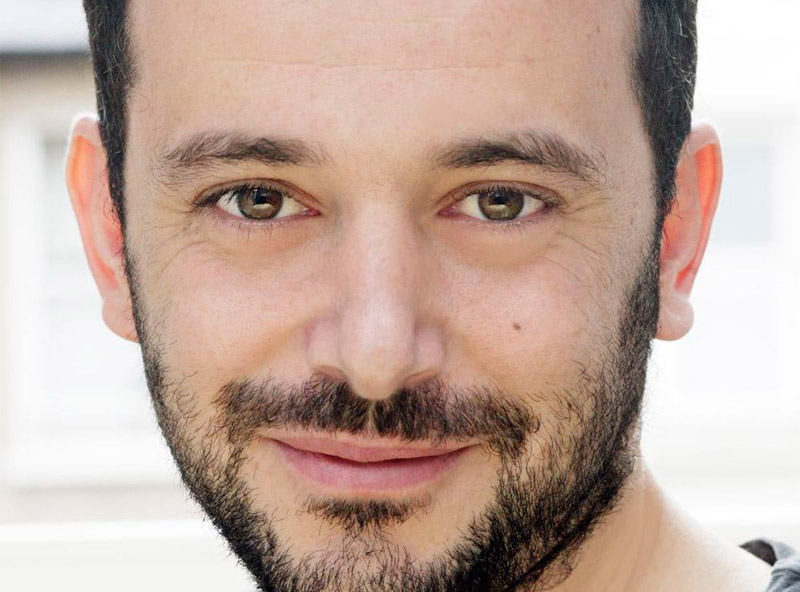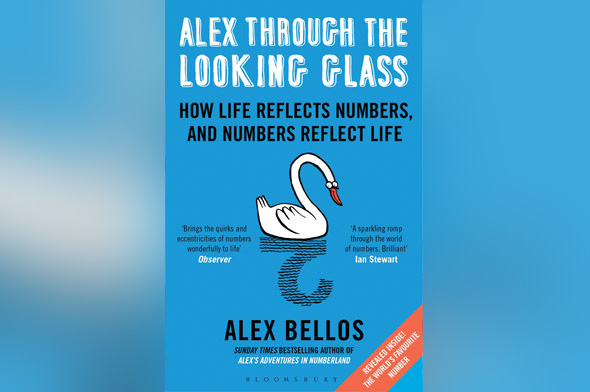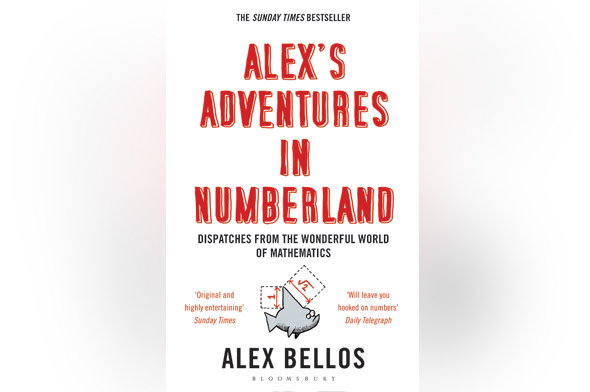Extract: 'Alex's Adventures in Numberland'
Chapter Zero
A Head for Numbers
When I walked into Pierre Pica’s cramped Paris apartment I was overwhelmed by the stench of mosquito repellent. Pica had just returned from spending five months with a community of Indians in the Amazon rainforest, and he was disinfecting the gifts he had brought back. The walls of his study were decorated with tribal masks, feathered headdresses and woven baskets. Academic books overloaded the shelves. A lone Rubik’s Cube lay unsolved on a ledge.
I asked Pica how the trip had been.
‘Difficult,’ he replied.
Pica is a linguist and, perhaps because of this, speaks slowly and carefully, with painstaking attention to individual words. He is in his fifties, but looks boyish – with bright blue eyes, a reddish complexion and soft, dishevelled silvery hair. His voice is quiet; his manner intense.
Pica was a student of the eminent American linguist Noam Chomsky and is now employed by France’s National Centre for Scientific Research. For the last ten years the focus of his work has been the Munduruku, an indigenous group of about 7000 people in the Brazilian Amazon. The Munduruku are hunter-gatherers who live in small villages spread across an area of rainforest twice the size of Wales. Pica’s interest is the Munduruku language: it has no tenses, no plurals and no words for numbers beyond five.
To undertake his fieldwork, Pica embarks on a journey worthy of the great adventurers. The nearest large airport to the Indians is Santarém, a town 500 miles up the Amazon from the Atlantic Ocean. From there, a 15-hour ferry ride takes him almost 200 miles along the Tapajós River to Itaituba, a former gold-rush town and the last stop to stock up on food and fuel. On his most recent trip Pica hired a jeep in Itaituba and loaded it up with his equipment, which included computers, solar panels, batteries, books and 120 gallons of petrol.Then he set off down theTrans-AmazonHighway, a 1970s folly of nationalistic infrastructure that has deteriorated into a precarious and often impassable muddy track.
Pica’s destination was Jacareacanga, a small settlement a further 200 miles southwest of Itaituba. I asked him how long it took to drive there. ‘Depends,’ he shrugged. ‘It can take a lifetime. It can take two days.’
How long did it take this time, I repeated.
‘You know, you never know how long it will take because it never takes the same time. It takes between ten and twelve hours during the rainy season. If everything goes well.’
Jacareacanga is on the edge of the Munduruku’s demarcated territory. To get inside the area, Pica had to wait for some Indians to arrive so he could negotiate with them to take him there by canoe.
‘How long did you wait?’ I enquired.
‘I waited quite a lot. But, again, don’t ask me how many days.’
‘So, it was a couple of days?’ I suggested tentatively.
A few seconds passed as he furrowed his brow. ‘It was about two weeks.’
More than amonth after he left Paris, Pica was finally approaching his destination. Inevitably, I wanted to know how long it took to get from Jacareacanga to the villages.
But by now Pica was demonstrably impatient with my line of questioning: ‘Same answer to everything – it depends!’
I stood my ground. How long did it take this time?
He stuttered: ‘I don’t know. I think … perhaps … two days… a day and a night …’
The more I pushed Pica for facts and figures, the more reluctant he was to provide them. I became exasperated. It was unclear if underlying his responses was French intransigence, academic pedantry or simply a general contrariness. I stoppedmy line of questioning and we moved on to other subjects. It was only when, a few hours later, we talked about what it was like to come home after so long in the middle of nowhere that he opened up. ‘When I come back from Amazonia I lose sense of time and sense of number, and perhaps sense of space,’ he said. He forgets appointments. He is disoriented by simple directions. ‘I have extreme difficulty adjusting to Paris again, with its angles and straight lines.’ Pica’s inability to give me quantitative data was part of his culture shock. He had spent so long with people who can barely count that he had lost the ability to describe the world in terms of numbers.
No one knows for certain, but numbers are probably no more than about 10,000 years old. By this I mean a working system of words and symbols for numbers.One theory is that such a practice emerged together with agriculture and trade, as numbers were an indispensable tool for taking stock and making sure you were not ripped off. The Munduruku are only subsistence farmers and money has only
recently begun to circulate in their villages, so they never evolved counting skills. In the case of the indigenous tribes of Papua New Guinea, it has been argued that the appearance of numbers was triggered by elaborate customs of gift exchange. The Amazon, by contrast, has no such traditions.
Tens of thousands of years ago, well before the arrival of numbers, however, our ancestors must have had certain sensibilities about amounts.They would have been able to distinguish one mammoth from two mammoths, and to recognize that one night is different from two nights.The intellectual leap from the concrete idea of two things to the invention of a symbol or word for the abstract idea of ‘two’, however, will have taken many ages to come about. This occurrence, in fact, is as far as some communities in the Amazon have come. There are tribes whose only number words are ‘one’, ‘two’ and ‘many’. The Munduruku, who go all the way up to five, are a relatively sophisticated bunch.
Numbers are so prevalent in our lives that it is hard to imagine how people survive without them. Yet while Pierre Pica stayed with the Munduruku he easily slipped into a numberless existence.He slept in a hammock. He went hunting and ate tapir, armadillo and wild boar. He told the time fromthe position of the sun. If it rained, he stayed in; if it was sunny, he went out. There was never any need to count.
Still, I thought it odd that numbers larger than five did not crop up at all in Amazonian daily life. I asked Pica how an Indian would say ‘six fish’. For example, just say that he or shewas preparing ameal for six people and he wanted to make sure everyone had a fish each.
‘It is impossible,’ he said. ‘The sentence “I want fish for six people” does not exist.’









